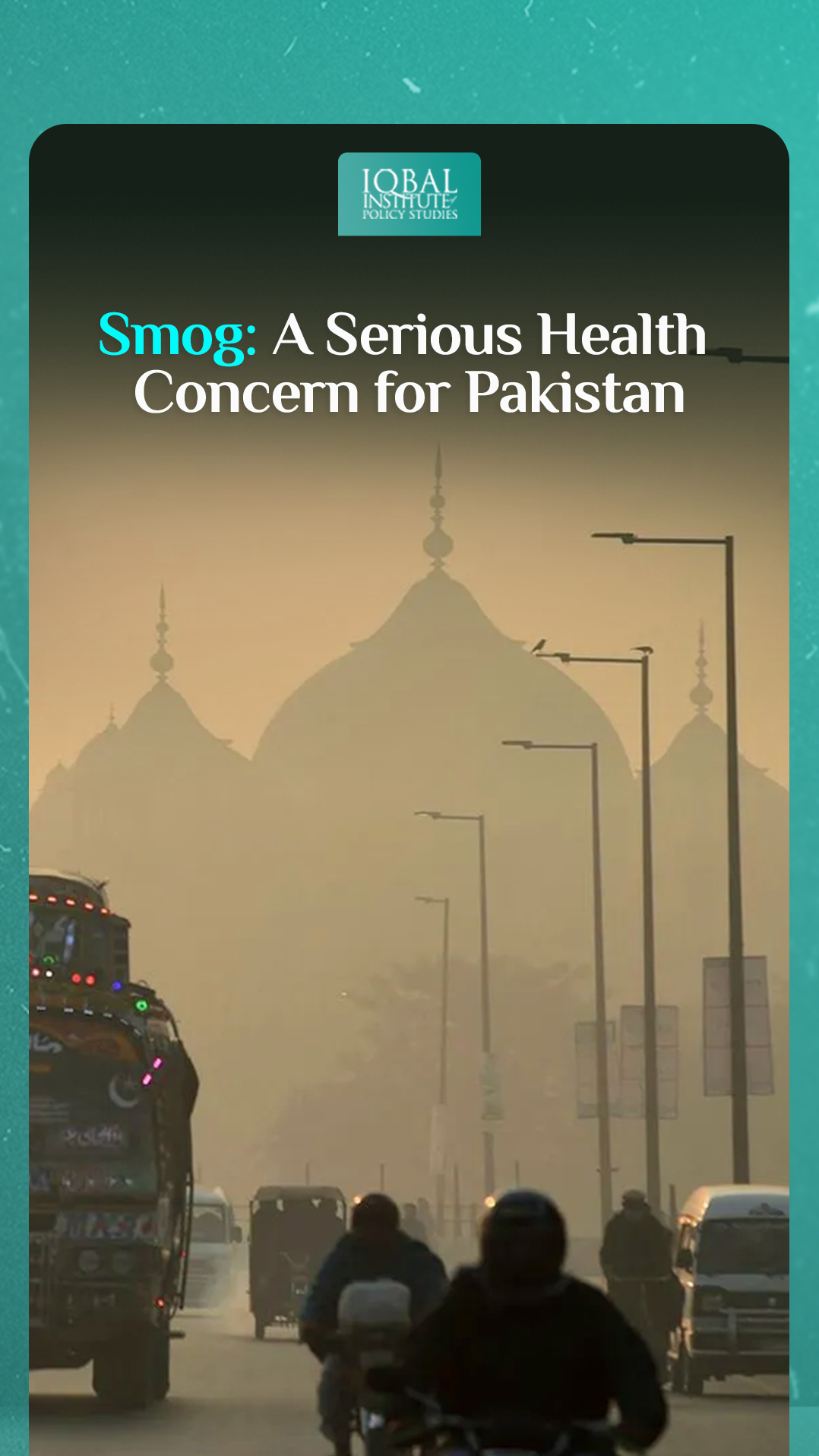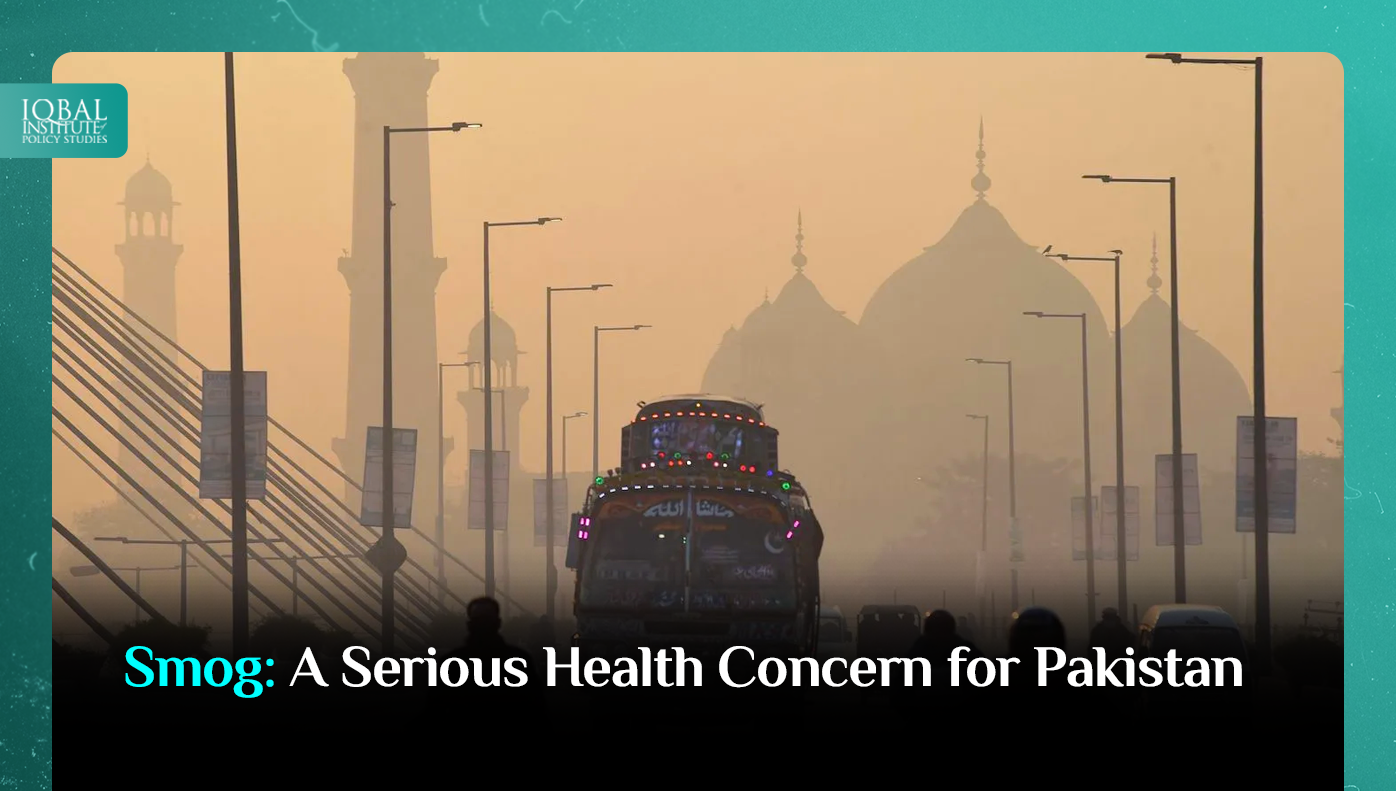Around 99% of Pakistan’s population lives in areas that don’t meet average air quality standards (Air Quality Life Index, 2022). According to the Air Quality Life Index, Pakistan ranked as the world’s fourth most polluted country. Around 212 million people live in areas where the annual average particulate pollution level exceeds the WHO guideline. As per the World Health Organisation, approximately 7 million people die annually from air pollution worldwide. During winters, the smog increases to a problematic level. Smog, a combination of smoke and fog, is considered a severe type of air pollution. Every major city in Pakistan, be it Lahore, Multan, Rawalpindi or Karachi, is facing the problem of smog.
Industrial emissions from power plants, factories, cars, and other sources reacting with heat and sunlight in the atmosphere are the major causes of smog. The health risks of smog are extremely serious, causing respiratory diseases like asthma and bronchitis and increasing risks of life-threatening diseases like cancer. As per the estimates, particulate matter is singlehandedly responsible for up to 30,000 premature deaths yearly. Not only human health, smog adversely affects animals and makes it difficult for them to survive in such bad conditions. Also, poor air quality restricts plant development and affects crops, trees, and vegetation. It impairs their ability to fight infections, making them more prone to sickness.
Considering the adverse impacts of smog, the government of Pakistan should develop an effective plan and adopt policies to reduce pollution, particularly the emissions of particulate matter and nitrogen oxides from factories and vehicles. Some of the preventive measures authorities should make mandatory for the citizens to follow:
Always wear a mask if you have to go out in the smog
Run an air-purifier
Avoid walking near highways to avoid road accidents due to low vision
Take rest breaks in the shade and drink plenty of water whenever you go out in the fog.
Avoid doing intense outdoor work.
Conclusively, the government should display details of air quality and the guidelines to control air pollution. Also, the authorities should devise a plan to reduce industrial and vehicular emissions, which can help improve air quality.



Leave a Reply